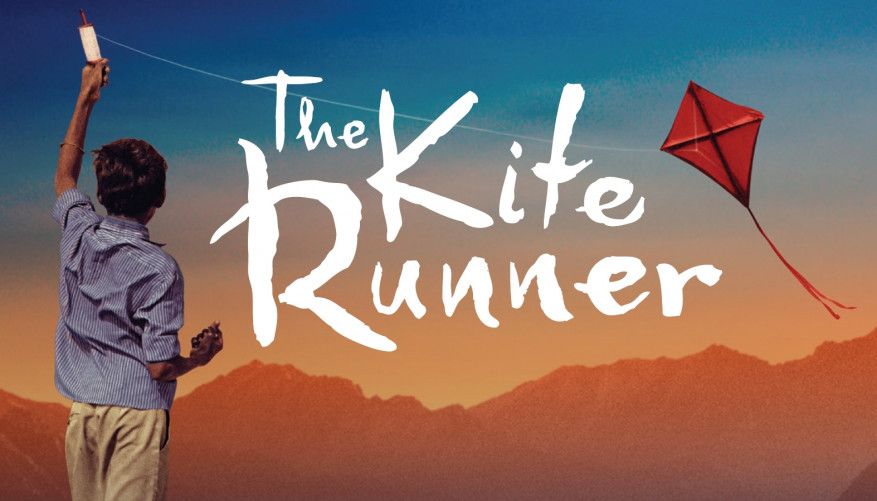
⭐⭐⭐
(Please note this review contains detailed discussion of the play’s plot) Based on the hugely popular novel by Khaled Hosseini, The Kite Runner, adapted for the stage by Matthew Spangler, had a lot to prove. Despite enjoying two runs in the West End in 2016 and ’17, I wasn’t as enamoured with the piece as many other audience members. Having studied the novel at A-Level, the boldness of the story and the narrative poetry which I had loved, weren’t quite captured in the theatrical language of this adaptation. Though it still packs an emotional punch and features innovative staging ideas, overall the play felt a little slow and watered down.
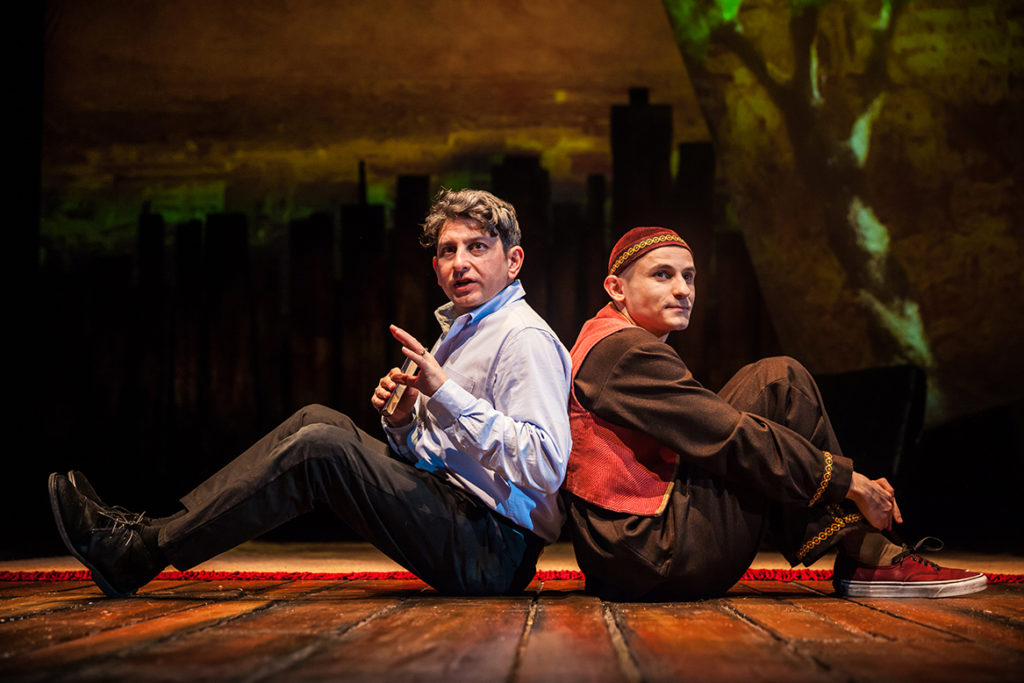
The story is narrated by Amir (David Ahmad) as a grown man, recounting his life in almost verbatim style, which, as a confessional story is a sensible choice but this sometimes takes away from the drama of the moment. Told in chronological order, the play begins with Amir’s childhood in Afghanistan where, as a wealthy Sunni Pashtun, he enjoyed a comfortable life and spent his days playing with his father’s servant, Hassan (Andrei Costin), ostracised for being a Hazara Shiite. On the fateful day of the kite tournament, Amir witnesses a horrific assault on his best friend, and his passivity haunts him decades later; when a phone call from an old friend comes out of the blue, Amir travels from his new home in California to Pakistan in an attempt to finally atone for his sins.
The whole production of this adaptation is minimally staged. The music is mostly provided by onstage tabla player, Hanif Khan, as well as Tibetan singing bowls used to create atmosphere. The live music is one of the play’s shining factors and it draws us into the world immediately.
Barney George’s set is equally sparse: just a wooden floor which curves like a skateboard ramp and alternating patterns projected onto a central rug. The backdrop changes colour and is decked with mounted wooden posts to vaguely resemble city skylines, but neither adds much to the production. There are also two giant canvas kites which swing down to conceal scenes and characters, which are effective, and which also show us Amir’s childhood pomegranate tree and later, Hassan’s death, through William Simpson’s projection design.
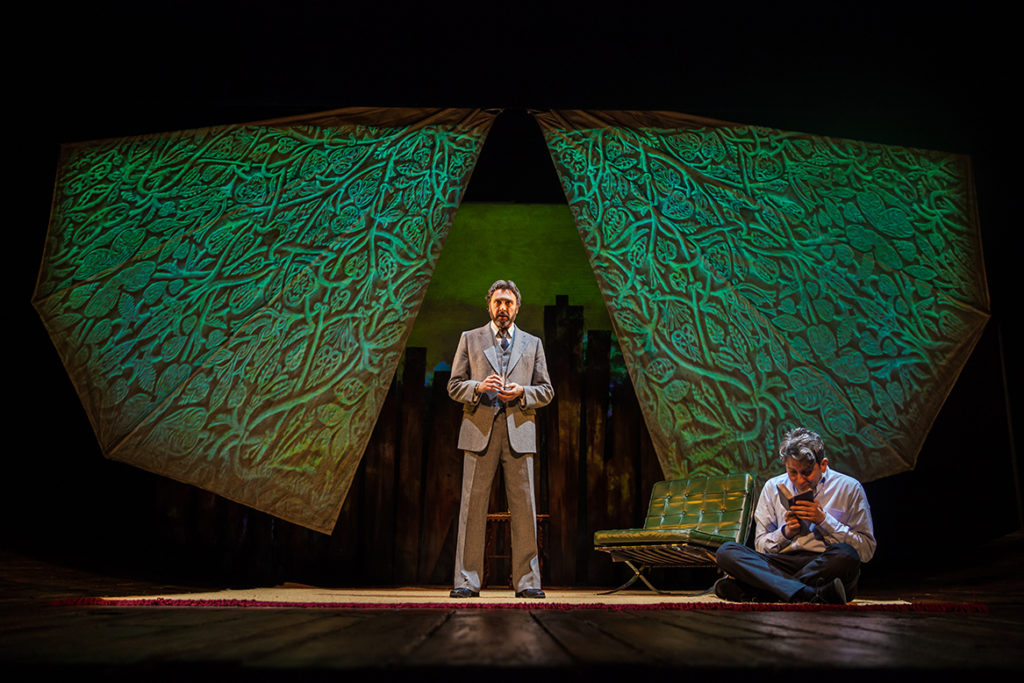
The sparseness of the stage works for the more distressing scenes where we only need to see characters and their expressions, but it makes the joyous ones like Amir and Soraya’s (Lisa Zahra) wedding feel a bit flat. Kitty Winter’s dancing is not quite lively enough to bring up the energy, nor is Charles Balfour’s lighting and Drew Baumohl’s sound really utilised to inject a party atmosphere either. This theme continues with the kite flying scene; there were only two tissue-paper kites, and they were clutched, not flown, in the hands of ensemble cast members, while Amir and Hassan’s kite was just mimed. The whole cast did do a good job of creating the tournament’s excitable tone and the use of several large, wooden Schwirrbögen, swung to create the sound of the wind, was very effective, but I wanted more kites – whether projected, or suspended in the auditorium. Now I wasn’t expecting a Mary Poppins moment, but I had hoped for much more of a spectacle for the novel’s most iconic scene.
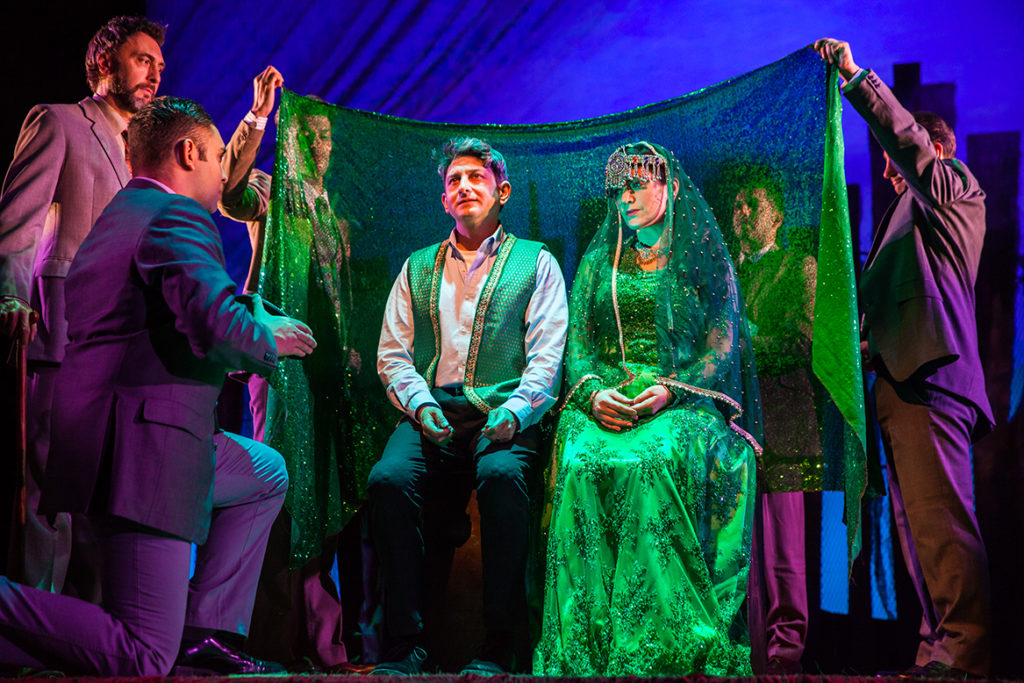
The performances are strong, with David Ahmad bearing most of the weight as the central character who almost never leaves the stage; he does a great job of capturing Amir’s selfish, self-pitying persona and is given plenty of fodder to do it with routinely interjected monologues. Andrei Costin is well cast as the faithful lamb Hassan, and he brings real pathos with Sorab; having Costin play both characters is a clever yet logical choice on director Giles Croft’s part, fitting in with the idea that father and son share an unmistakable resemblance. The decision to represent the characters as children through adopting somewhat whiny children’s voices, however, is a bit of a misstep, sounding inauthentic and becoming a little grating. Child-like physically (which Costin and Ahmad already perform well), coupled with simply speaking with an Afghan accent would have sufficed, and would still have contrasted with adult, American-accented Amir; Hassan’s voice need not contrast anyway as we never see him grow into a man. Dean Rehman is also great at grounding the piece as Amir’s father, Baba, bringing a nuance to the role with both power and sensitivity.
The most harrowing moments such as Assef’s assault on Hassan and Sorab’s attempted suicide are neatly hidden or dealt with offstage but still manage to evoke a few audible gasps and genuine sniffling from the audience. The subject matter is difficult enough that visual representation is not needed but I did want Sorab’s dancing scene to be more poignant. In the book, it’s an exploitative and sinister moment where Amir realises the suffering of Hassan has multiplied in his son, and is the catalyst for Amir finally fighting for someone other than himself. In the same vein, author Hosseini’s Assef is more sadistic – leering yet captivating – but Bhavin Bhatt plays him with a gravelly voice which makes him almost a caricature. Despite his strong portrayal as the teenage bully, Bhatt doesn’t quite manage to evolve the character convincingly into the wild, paedophilic fanatic. The fighting (directed by Philip D’Orléans), even with a knuckleduster in the mix, is also a bit lacklustre.
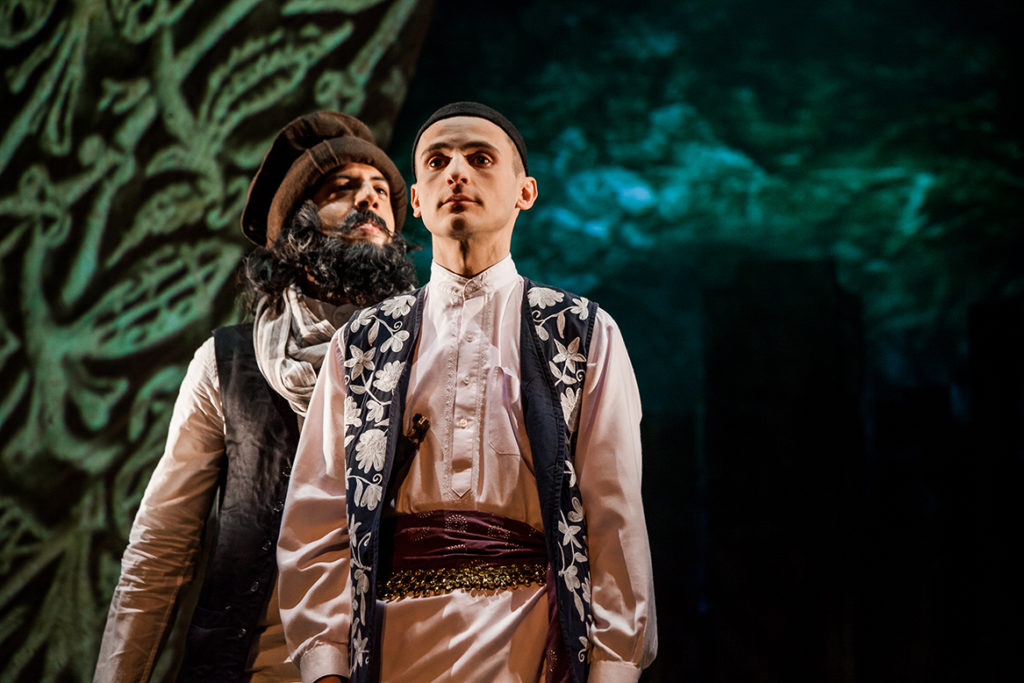
There is one incredibly emotional scene in the hospital however, where Amir prays for Sorab’s recovery on a prayer mat made by a rectangle of light, and where Ahmad gives a tear-jerking performance of desperation. There’s also a touching point at the end where Amir finally stands up to Soraya‘s racist father (Ian Abeysekera) and shows Sorab how to fly a kite, causing a flicker of a smile on the boy’s face. Amir asks Sorab if he would like him to run to capture the kite they have won together and Sorab nods; Amir tells him, ‘For you, a thousand times over’ – a moving and cyclical moment of atonement which I feel should have been the final line.
The Kite Runner is a faithful adaptation with a hard-working ensemble cast and great use of use music, but it’s a little bland and lacks the vitality of its original medium. It is well-crafted and unspools nicely over its 130 minutes, but never fully takes off and gives us the spectacle we need.
The Kite Runner continues its UK-wide tour until 4th July.
